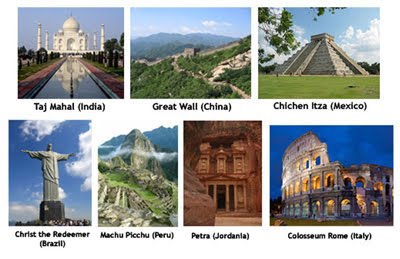Expressions suggestions and advise
The following English words and expressions are all used to make suggestions and give advice to people.
should
"You should try to practise English."
"You shouldn't translate too much."
Why don't you
"Why don't you join an English club?"
ought to
"You ought to read more."
If I were you, I'd…
"If I were you, I'd watch more television."
*All these expressions are followed by a verb, without to. For example: "He should visit the Eiffel Tower." (Not "he should to visit the Eiffel Tower.")
suggest and recommend
Either use a verb + ing
"I suggest visiting the Eiffel Tower." (We should all go.)
OR use that + a verb without to
"I suggest that you visit the Eiffel Tower." (I'm not going.)
OR use a noun
"I recommend the lasagne." (It's a very good dish to choose in this restaurant.)
advise
"I advise you to buy a good dictionary."
advice
Advice is an uncountable noun. This means that we can't say an advice. Instead, we say some advice or a piece of advice.
"Let me give you some advice."
"She gave me a very useful piece of advice: to buy a good dictionary."
Speaking tip
Many people don't like getting advice if they haven't asked for it! To avoid giving the wrong impression, you can try some of these expressions:
"You could always…"
"Have you considered…"
"Perhaps we could…"
"Do you think it's a good idea to…"
Degree of comparison
| Grammatical categories |
|---|
| Animacy Aspect Case Clusivity Definiteness Degree of comparison Evidentiality Focus Gender Mirativity Modality Mood Noun class Number Person Polarity Tense Topic Transitivity Voice |
The degree of comparison may be expressed morphologically, or syntactically. In English, for example, most monosyllabic and some disyllabic adjectives have morphological degrees of comparison: green (positive), greener (comparative), greenest (superlative); pretty, prettier, prettiest; while most polysyllabic adjectives use syntax: complex, more complex, most complex.
- The positive degree is the most basic form of the adjective, positive because it does not relate to any superior or inferior qualities of other things in speech.
- The comparative degree denotes a greater amount of a quality relative to something else. The phrase “Anna is taller than her father” means that Anna's degree of tallness is greater than her father's degree of tallness.
- The superlative degree denotes the most, the largest, etc., by which it differs from other things.
English usage
Traditional English grammar uses the comparative form when comparing exactly two things, and the superlative when comparing three or more, but in informal usage this may not hold.| Positive | Comparative | Superlative |
|---|---|---|
| Good | Better | Best |
| Beautiful | More Beautiful | Most Beautiful |
| Big | Bigger | Biggest |
| Tall | Taller | Tallest |
| Sincere | More Sincere | Most Sincere |
| Small | Smaller | Smallest |
Rhetorical use of unbalanced comparatives
In some contexts, such as advertising or political speeches, absolute and relative comparatives are intentionally employed in a way that invites a comparison, and yet the basis of comparison is not established. This is a common rhetorical device used to create an implication of significance where one may not actually be present. Although such usage is common, it is sometimes considered ungrammatical.For example:
- Always!
- Why pay more?
- We work harder.
- We sell for less!
describing process
Describing a Process or a Procedure
- Process: How something happens, takes place. Often uses Passive tenses
- Procedure: Giving Directions or Instructions. Usually in Active voice

Process
Describing a process means writing about how something is made or how something happens. Examples: the rainwater cycle, how coffee is grown, how glass is made, getting a driving license, starting a business.Introduction
First, look at these introductory pages which give information on the Active and Passive voice and when they should be used.- Layout of Process Essay
- More about the Passive
- Popcorn and Coffee: Passive and Active
- Using a Computer: Passive and Active
- Even more about the Active and Passive
- Exercise Sentences
- Changing a Tyre
- Exercise: Making Bread
- Expanding Your Essay: Adding Where or Why to each stage
- Gap-fill exercise Changing a tyre
- Process writing tips



Tidak ada komentar:
Posting Komentar